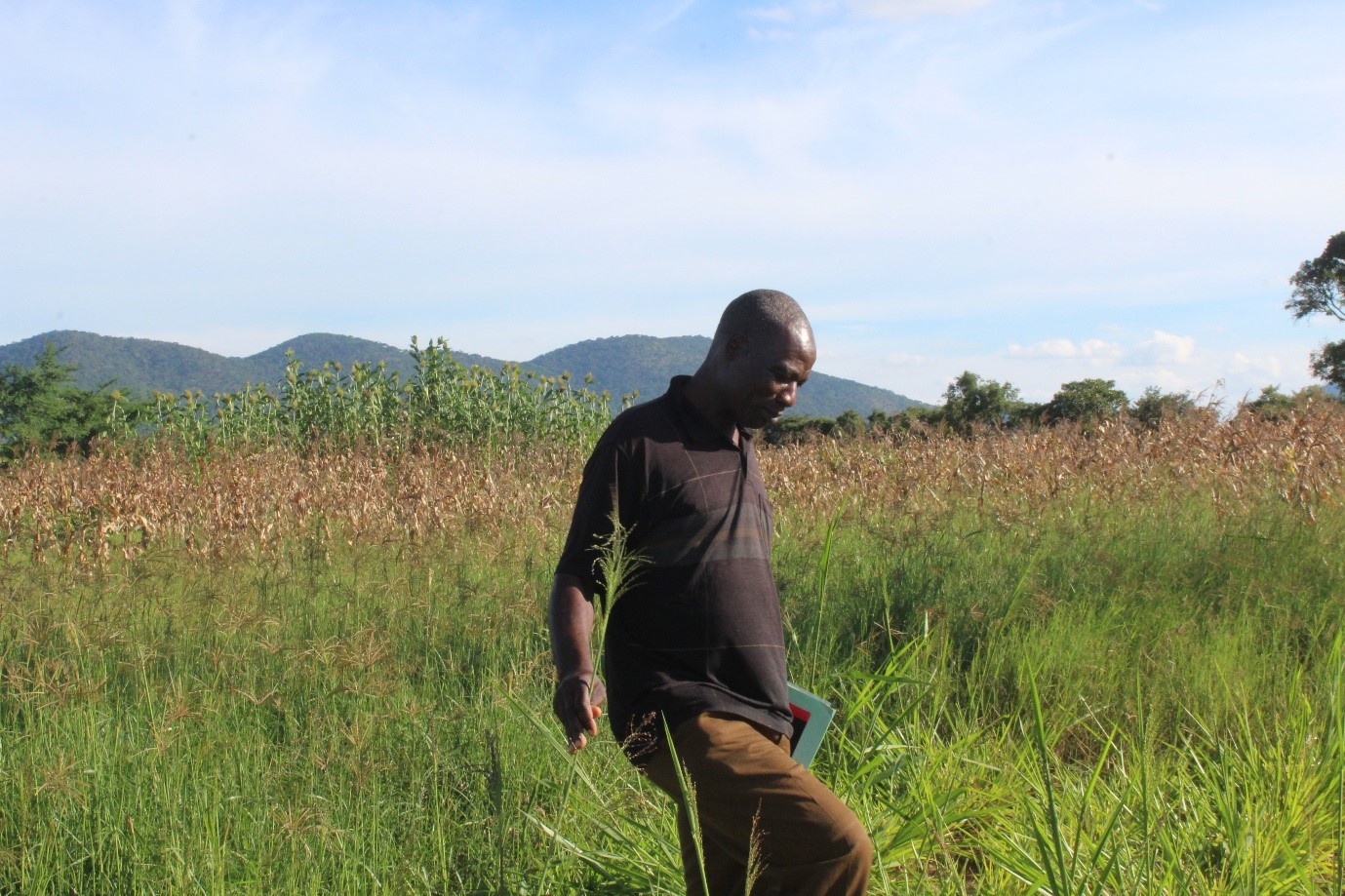Forage seed production in Zambia – an avenue towards improved rural household incomes.

- By Natasha Mhango
- Tags Stories Forage
Making smallholder livestock farmers resilient to climate change involves enlightening them to enhancing good animal nutrition practices among other things.
Farmers in rural Zambia depend heavily on rain-fed agriculture. As such, their household food-nutrition security continues to be vulnerable to the threats of climate change.
These threats extend to their livestock nutrition as ruminants are forced to roam longer than usual distances in search of pasture. In the driest months of the year, most livestock gradually become emaciated.
In efforts to improve livestock production and productivity; and enhance rural farmers’ resilience to climate change, the IFAD-supported Enhanced Smallholder Livestock Programme (E-SLIP) has been working towards empowering smallholder farmers to address the challenge of poor animal nutrition, among other interventions.
One of these interventions is the promotion of forage and forage seed production among smallholder farmers across all the provinces of Zambia.
While in some cases, this intervention has resulted in the increased adoption of forage production and animal fodder, the interventions have also resulted into increased household incomes in other cases.
In efforts to build smallholder farmers’ capacity in forage and forage seed production, Wilson Phiri of Katete district in Zambia was engaged by E-SLIP to be one of their 55 forage and pasture seed growers.
The Programme has been supporting these 55 seed growers with perennial legumes and pastures with a view of establishing a sustainable forage seed supply system.
"Since I started vaccinating my calf in 2019, I have not had any mortalities. My herd has grown from 15 to 29, and I am so grateful. I am able to support my siblings' education, and I have the program to thank for that," Wellington said.
“My livestock, particularly cattle and goats were very often sickly and I was told by the veterinary extension service officers that poor nutrition was one of the causes,” Wilson narrated.
So, when he was invited to attend a training facilitated by E-SLIP on how to produce, utilize and conserve forage and pasture, he willing attended. From that day onwards, his forage and pasture production has become one of his income generating activities.
During the 2019/2020 farming season, Wilson made a name himself when he made approximately USD $ 13,000 from his forage and pasture seed production – making him the highest earner among all of E-SLIP forage seed growers for that season.
“With some of the money I made that year, I bought myself a van to be transporting my produce to the market. I also bought a motorbike and the rest of the money I used to for other household necessities,” Wilson shared.
He added that the quality of his livestock has also visibly improved and he is planning on buying himself another farm solely for forage and animal fodder production.
Challenges of ignorance
“My fellow farmers see the forage and pasture in my fields and think that I have been wasting my energy on growing shrubs - they call me mentally challenged,” Wilson said.
This mindset has made surrounding smallholder farmers skeptical to invest in forage and pasture seed production for fear of being ridiculed. Furthermore, their lack of knowledge on the importance of forage production entails that Wilson has been forced to seek market for his forage seed farther away than necessary because the local market is limited.
“I have market for some of my forage and pasture but it is very far. Farmers here still don’t know much about making animal fodder from the kind of seed I grow,” Wilson explained.
Way forward
The forage and pasture seed that E-SLIP promotes are climate resilient perennial legumes that can aid in making livestock farmers more resilient to climate change. Scaling up the promotion of on-farm production can create the much-needed awareness among smallholder farmers on the benefits of forage and pasture production.
Furthermore, as E-SLIP has incorporated an agribusiness component to its line of interventions, it is hoped that farmers like Wilson Phiri can be supported with the necessary entrepreneurial skills required to boost their production.
